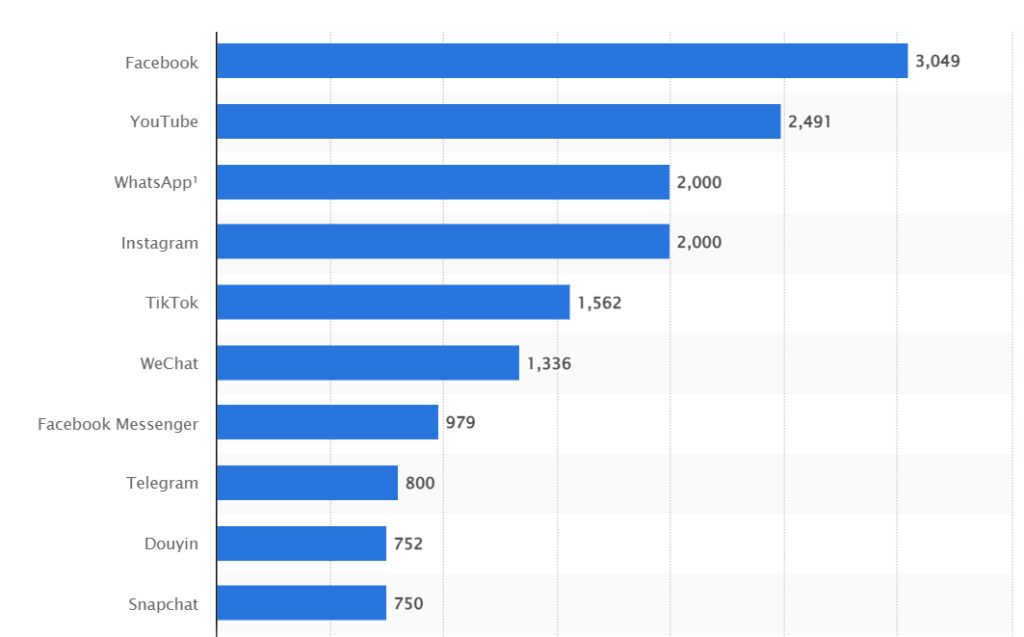The Influence of Social Media on Mental Health
 The impact of social media on mental health is a multifaceted issue, with both positive and negative effects depending on users’ usage, perception, and self-perception. Key factors to consider include self-perception, and others’ perceptions.
The impact of social media on mental health is a multifaceted issue, with both positive and negative effects depending on users’ usage, perception, and self-perception. Key factors to consider include self-perception, and others’ perceptions. - Social media can enhance connection, increase self-esteem, and improve a sense of belonging by facilitating social interactions, peer support, and online communities.
- Social media can also lead to tremendous stress, pressure to compare oneself to others, and increased sadness and isolation by causing body image dissatisfaction, addiction, cyberbullying, phubbing, fear of missing out, and lower life satisfaction.
- The quality rather than the quantity of social media use can determine whether the experience will enhance or deteriorate the user’s mental health. Mindful use is essential to social media consumption.
- Excessive use of social media has been linked to depression, anxiety, loneliness, and lower self-esteem. Users at risk of social media addiction often report depressive symptoms and lower self-esteem.
- The COVID-19 pandemic has heightened social media usage for information, communication, and entertainment, offering coping mechanisms but also increasing exposure to misinformation, negativity, and stress, highlighting the potential dangers.
How social media affects your brain?
 Social media affects your brain in various ways, depending on how you use it, what you see, and how you feel. Some of the main effects are:
Social media affects your brain in various ways, depending on how you use it, what you see, and how you feel. Some of the main effects are:
- Social media can help you pay more attention by exposing you to a variety of interesting material, but it can also make you multitask and cause you to become distracted by unrelated or unfavourable content.
- Social media can help you retain and recall information from external sources, which can boost your memory and information processing. However, it can also make you rely more on online signals and less on your internal memory.
- By promoting social connection, support, and validation, social media may enhance your social and emotional response. However, it can also have the opposite effect by fostering social comparison, loneliness, and discontent.
Can social media cause addiction?
In today’s digital age, social media has become an integral part of our daily lives. While it offers a myriad of benefits such as staying connected with friends and family, sharing experiences, and accessing information, there’s growing concern about its addictive nature.
Social media platforms are designed to capture and retain our attention. Features like notifications, likes, and comments trigger the release of dopamine in our brains, creating a pleasurable sensation that keeps us coming back for more. This constant reinforcement can lead to addictive behaviors, where individuals find themselves compulsively checking their feeds or spending hours scrolling mindlessly.
Moreover, the curated and often idealized content on social media can contribute to feelings of inadequacy and FOMO (fear of missing out), further fueling the addiction cycle.
While social media addiction isn’t recognized as an official disorder, it can have significant negative impacts on mental health, productivity, and relationships. It’s essential to be mindful of our usage and cultivate healthy digital habits to maintain a balanced lifestyle in the digital age.
Social media addiction: Recognizing the signs and how to beat it?
 An excessive want to use social media or log in is known as social media addiction, and it may have a harmful impact on a person’s everyday activities and interpersonal connections. Here are a few indicators of a social media addiction:
An excessive want to use social media or log in is known as social media addiction, and it may have a harmful impact on a person’s everyday activities and interpersonal connections. Here are a few indicators of a social media addiction:
- Using social media for longer periods of time than you had planned
- Using it more when dining, going out, or even just hanging out with friends and family
- Thinking about social media even when you’re not using it
- Constantly monitoring postings and notifications
- Negative consequences for your work or education if you put social media use ahead of duties
- Limiting how much and how often you use social media
- Deleting unnecessary applications from your devices or turning off notifications
- Choosing enjoyable and fulfilling hobbies, sports, or volunteer work
- Using mindfulness, meditation, or relaxation techniques to manage stress and emotions
- Asking friends, relatives, or online groups that share your objectives and struggles for support
- Keeping yourself engaged during free time by reading books, watching documentaries, or movies will help you avoid using social networking applications.
Advantages of social media
 You can meet others on social media who have similar interests, ambitions, or hobbies.
You can meet others on social media who have similar interests, ambitions, or hobbies. - You can interact with websites, groups, and communities that are focused on your interests and hobbies. Social media can also help you meet people you have never met, locate mentors, and network with experts.
- Social media can improve your self-expression, creativity, and communication abilities. You can communicate with others by using social media to share your thoughts, beliefs, and experiences.
- Online interactions with people from various cultures, perspectives, and experiences can also teach you.
- Social media networks are another way to display your abilities, projects, and capabilities.
- You can find the most recent news, information, and trends on social media.
- You can also follow celebrities, professionals, or influencers who teach or inspire you on a range of subjects.

- You have access to helpful guides, courses, and tools that may assist in your career or personal growth.
- Social networking can help your brand, company, or cause. You may reach a wide and specific audience by using social media to advertise your goods, services, or events.
- Social media can also be used to interact with your supporters, followers, and clients.
Social media can offer you entertainment, fun, or relaxation.
What are some disadvantages of social media?

 Users of social media may experience anxiety and sadness as a result of being exposed to unpleasant content, cyberbullying, social comparison, and unrealistic expectations.
Users of social media may experience anxiety and sadness as a result of being exposed to unpleasant content, cyberbullying, social comparison, and unrealistic expectations.- Due to distractions from work, multitasking, and a dependence on outside cues rather than internal memory, social media can shorten users’ attention spans and impair their memory.
- Social media may damage emotional and social skills by isolating users, decreasing in-person connections, and fostering a sense of discontentment with life.
- Sleep patterns, the amount of time spent sitting, and body image can all be impacted by social media, which can have an impact on physical health.
- Misinformation, fake news, and propaganda can be spread through social media, influencing users’ thoughts, attitudes, and actions.
User active data of these applications

Conclusion
Read our latest blogs here